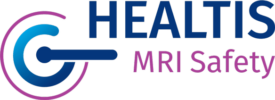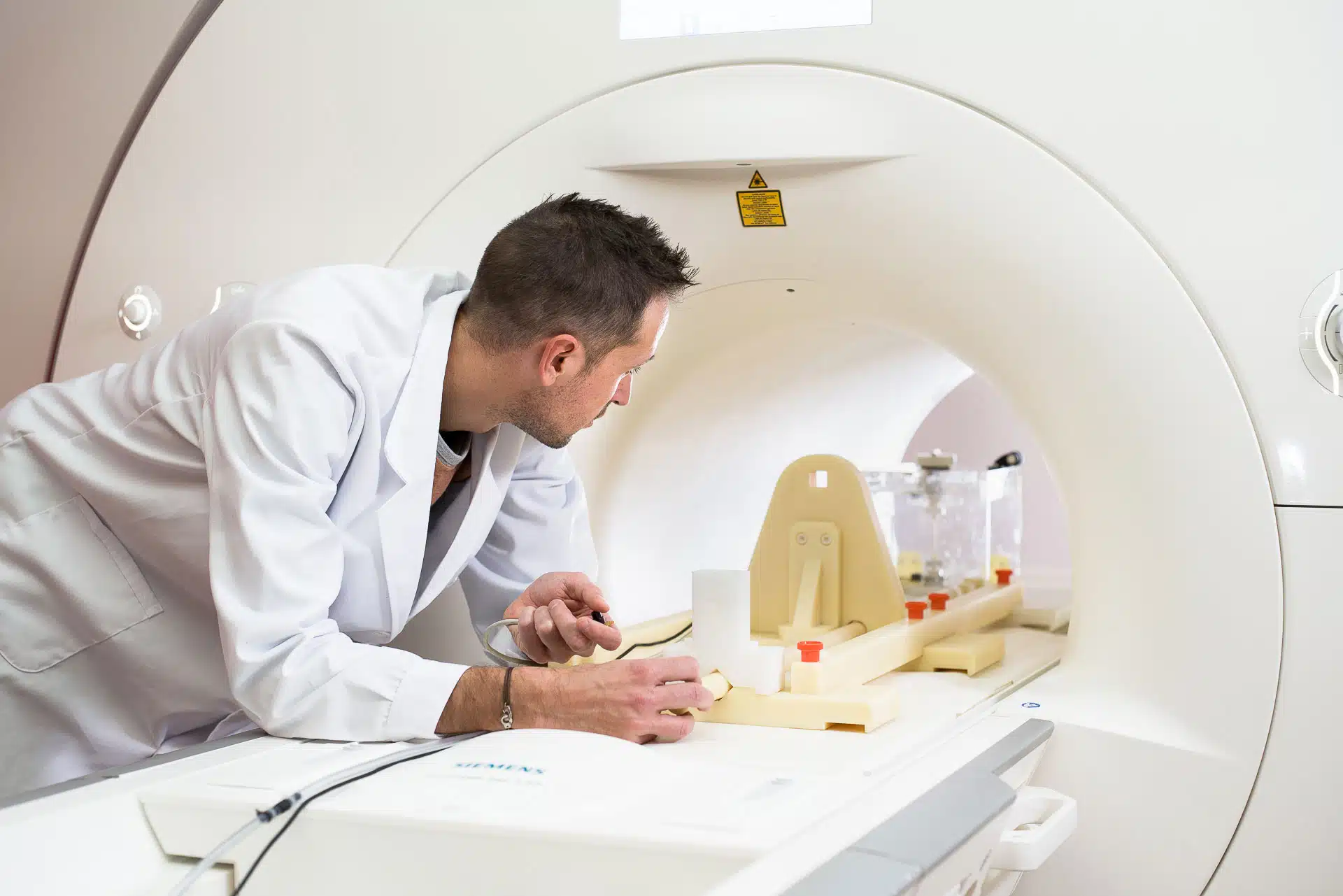Get help from our experts, for safer MRI products
Stemming from French research innovations, R&D is at the heart of Healtis’ DNA. We offer a range of services designed to support medical device manufacturers from the earliest design phases of their products, to ensure optimal MRI safety.
By working with Healtis during your R&D phase, you can reduce the costs, time and risks involved in assessing the MRI safety of your future product. You’ll ensure that your device complies with current MRI safety standards, and with MR conditional labelling you may stand out from your competitors.
We offer R&D support in a variety of forms, tailored to your specific needs:
- MRI safety and compatibility pre-testing: to identify potential problems linked to the MRI safety and compatibility of your device, or to rapidly assess the behavior of a prototype or component.
- Assistance with medical device design: we can guide you in your choice of design, electronic components, materials, etc.
- Numerical simulations or modeling: We carry out detailed studies using numerical simulations and modeling of the electromagnetic environment and interactions of MRI.
For these services, we put the expertise of our specialists and all our technical resources at your disposal.
Rely on Healtis to secure your developments and guarantee the MRI safety compliance of your medical devices.
Why choose Healtis for the development of your MRI-compatible devices?
– A team of experts: Our team, with its many years of experience, has successfully carried out numerous R&D projects for our customers. Our expertise will allow you to meet your specific needs.
– Adapted, high-performance technical resources: We use state-of-the-art equipment and advanced technologies to guarantee high-precision testing and simulation.
– Flexible services: our R&D support services are designed to offer the flexibility you need during the design phase.
– Research Tax Credit (CIR) accreditation: Healtis is accredited by the French Ministry of Higher Education, Research and Innovation. This accreditation testifies to our expertise in research and development and enables our French customers to benefit from a tax credit for the R&D missions we carry out for them. Download the approval decision here for more details.
What are the determining factors for the safety of an implant in MRI?
Medical devices can present a number of risks when introduced into MRI, such as those associated with magnetic forces, heating, malfunctions and unintended stimulation. A device likely to be introduced into an MRI environment should be designed to minimize the risks associated with the electromagnetic environment of MRI.
How can I improve the MRI safety of my medical device?
The choice of materials is a crucial parameter for improving the MRI safety and compatibility of a medical device, but dimensions and geometry also play an important role. For active implantable medical devices (AIMDs), the choice of electronics and the design of the PCB (including component layout, filtering and shielding) are also decisive in optimizing the MRI safety & compatibility of your device.

